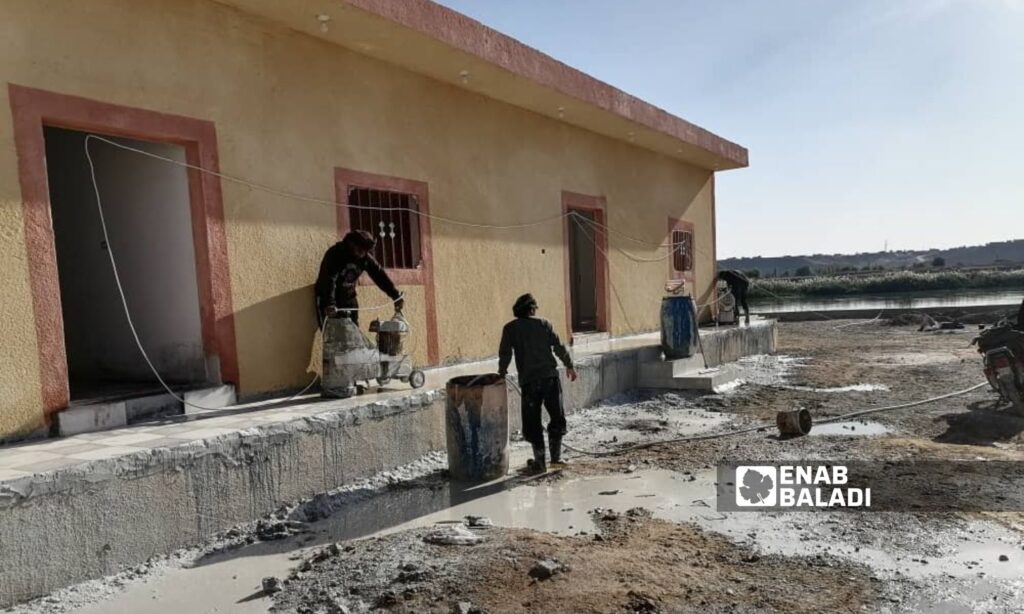Areas under the control of the Autonomous Administration of North and East Syria (the civilian umbrella for the Syrian Democratic Forces) in Deir Ezzor, especially the Shaitat region (Al-Kashkiya, Granij, and Abu Hamam), are experiencing continuous water outages.
Some residential areas have no water supply, forcing the locals to rely on well water, which causes health problems affecting the intestines and kidneys, in addition to being “expensive.”
Residents of the area are accusing the water committee and its head of procrastination in repairing the broken-down stations in order to “steal” the stations’ fuel allocations.
No water
Enab Baladi spoke with several people from the Shaitat area, who said that services have been “completely absent” for several years, including water.
According to citizens Enab Baladi met in the area, the damages to the stations are “minor”, yet projects to reboot them have not been implemented to date.
The locals have turned to well water, which is not available in all homes due to the costs of drilling and the lack of suitable engines for extracting groundwater.
Well water causes health issues and is considered “expensive” and costly relative to the standard of living and wages in the area, where the price of a tanker or equivalent to one thousand liters reaches 40,000 Syrian pounds.
The residents of north-eastern Syria depend on three main water sources: rainwater, groundwater, and rivers passing through the area.
These sources cover the needs of an estimated 4.8 million people, including more than half a million internally displaced persons, according to estimates by the Syrians for Truth and Justice (STJ) organization.
On the other hand, water cannot reach all the inhabitants of the area due to several water station disruptions, caused by malfunctions or armed attacks.
“Corruption”
Ibrahim al-Hussein, a journalist from the Shaitat area and the director of Alsharqia Post local news website, told Enab Baladi that water lines are subject to fuel theft, which prevents water from reaching neighborhoods far from the station.
He added that the lack of support directed to water stations and operating hours also prevents water access, noting that the water line does not reach most neighborhoods of al-Kashkiya and Granij.
On February 12, a protest took place in the towns of al-Kashkiya and Abu Hamam, demanding drinking and irrigation water, and holding the water committee’s corruption responsible.
An employee of the water committee in the Shaitat region, who remained anonymous as he was not authorized to speak to the media, told Enab Baladi that there are violations and corruption in the water line, which are considered “one of the biggest problems hindering the committee’s work”.
On the other hand, the Autonomous Administration does not provide sufficient support for the stations, pointing to organizations that work on repairing the stations and water networks, according to the employee.
He also explained that the operating hours of the water pumping generators range between four to six hours, depending on the area, but this duration is not sufficient for the water to reach homes far from the station.
Henrietta Fore, the Executive Director of UNICEF, reported to the Security Council on the humanitarian situation in Syria, stating that the organization had recorded 46 attacks on water facilities in 2019.
In 2010, water was consistently available to 98% of the urban population and 92% of the rural population. Now, about 50% of water and sanitation facilities are not operational across Syria, according to an April 2022 report from the International Committee of the Red Cross (ICRC).

